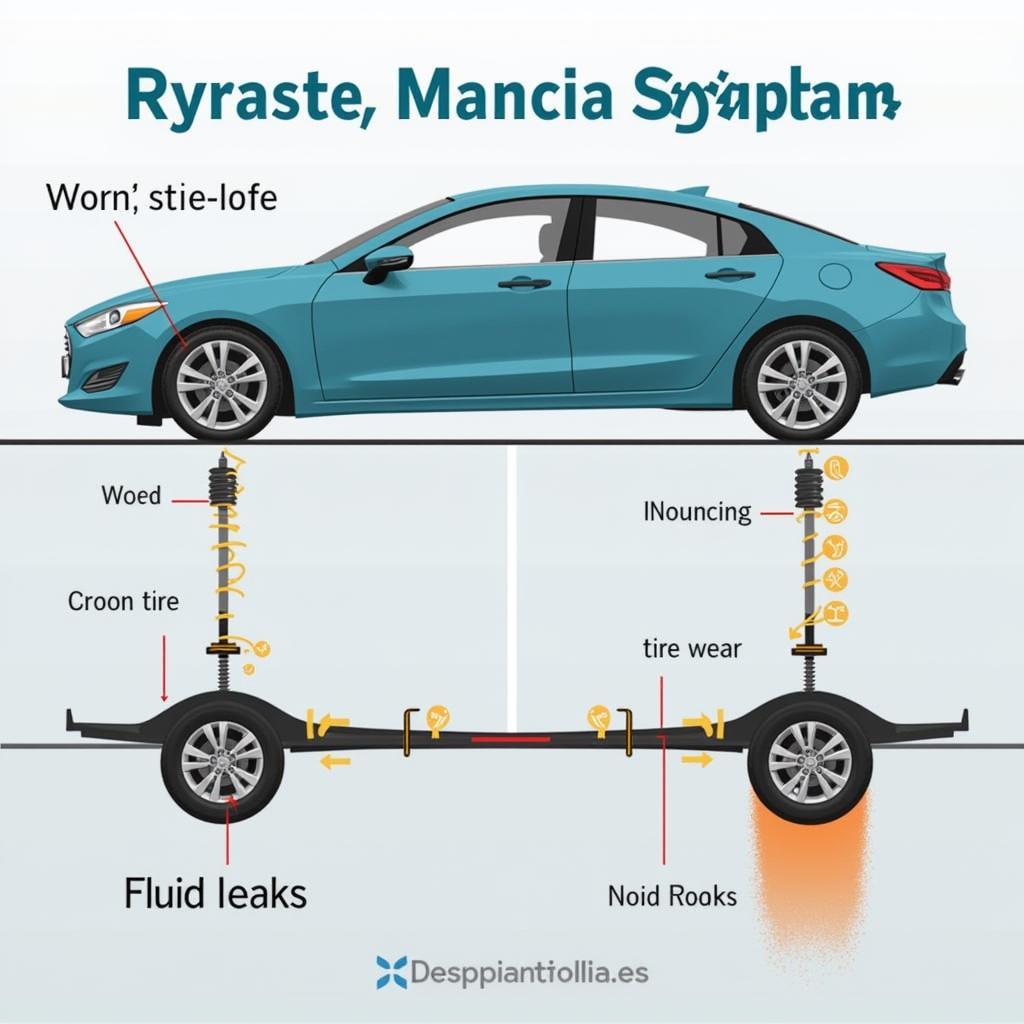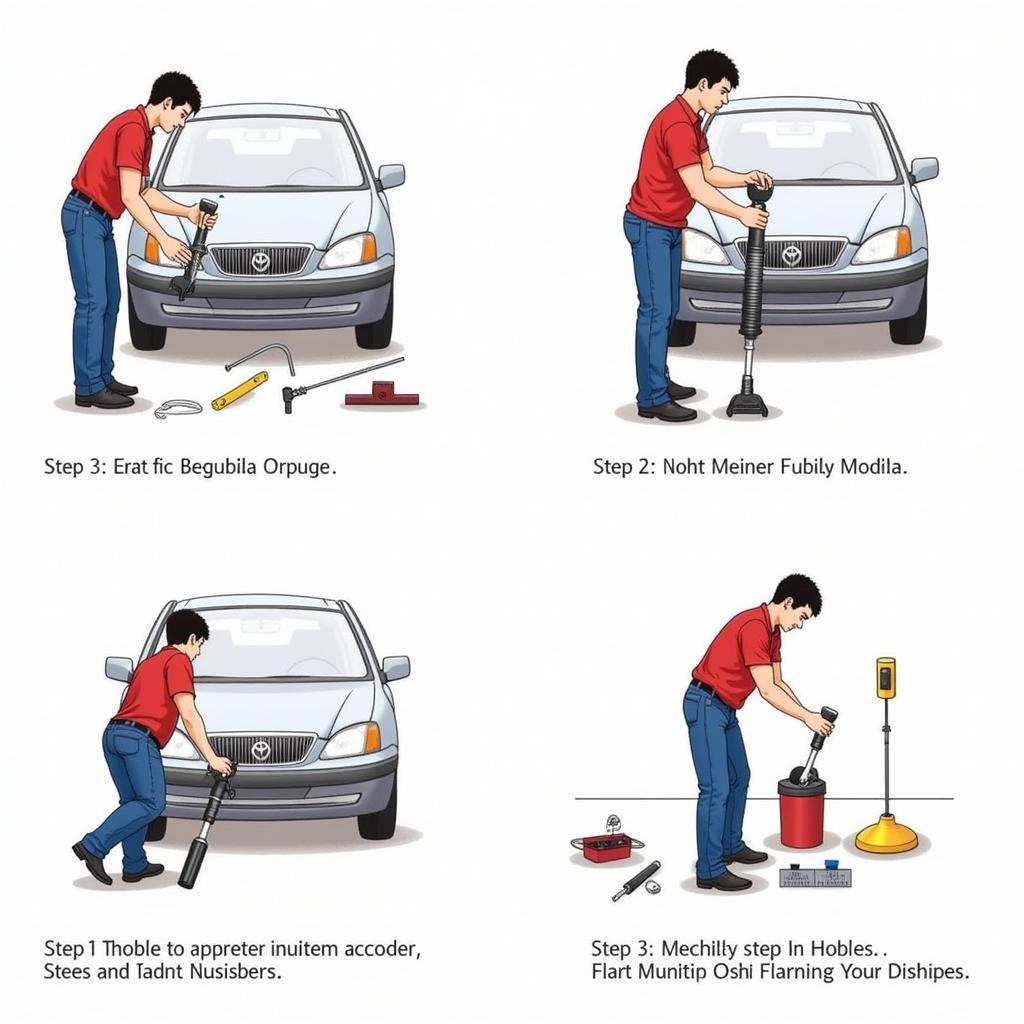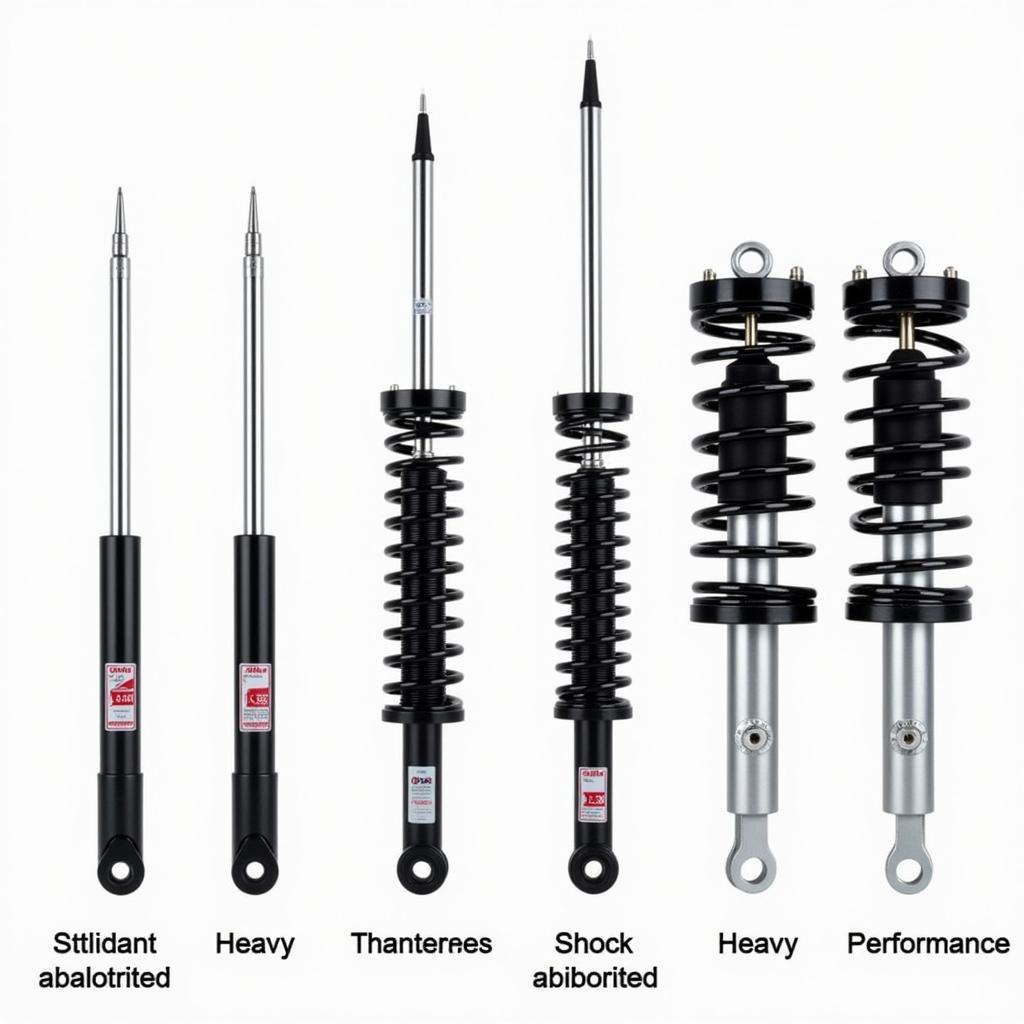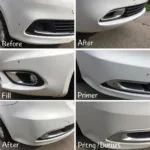Car shock absorbers, or shocks, are crucial for a smooth and safe ride. They dampen vibrations, ensuring your tires stay in contact with the road and providing control and stability. Knowing how to diagnose and repair your car shocker can save you money and ensure your vehicle’s safety. This guide will walk you through the process of identifying problems, understanding repair options, and even tackling some DIY fixes.
Identifying a Faulty Car Shocker
Several signs indicate a potential problem with your shocks. A bouncy ride is the most obvious symptom, often noticeable when driving over bumps or uneven surfaces. Other indicators include uneven tire wear, leaking fluid around the shock, a knocking sound when driving over bumps, nosediving during braking, and swaying excessively when cornering. Recognizing these signs early can prevent further damage and maintain optimal driving conditions.
Common Symptoms of Worn Shocks
- Excessive Bouncing: If your car continues to bounce after hitting a bump, your shocks are likely worn.
- Uneven Tire Wear: Worn shocks can cause uneven pressure on tires, leading to premature and uneven wear.
- Fluid Leaks: Visible fluid around the shock absorber is a clear sign of a leak and requires immediate attention.
- Knocking Sounds: A knocking or clunking sound, especially when driving over bumps, indicates worn or loose components within the shock assembly.
- Nosediving During Braking: Worn shocks can cause the front of your car to dip excessively when braking.
- Swaying or Instability: Difficulty controlling your car, especially during turns or at higher speeds, can be attributed to faulty shocks.
 Worn Car Shocks Symptoms
Worn Car Shocks Symptoms
DIY Car Shocker Repair: Basic Steps
While some shock repairs require professional assistance, certain tasks can be performed at home with basic tools. Inspecting your shocks visually for leaks or damage is a good starting point. You can also check for looseness by trying to move the shock absorber by hand. However, replacing shocks often involves specialized tools and knowledge, so it’s essential to assess your skills and resources before attempting more complex repairs.
When to Seek Professional Help
If you’re uncomfortable working on your car’s suspension system, it’s always best to consult a qualified mechanic. Complex repairs, like replacing struts or coil-overs, are best left to the professionals. Attempting these repairs without proper training can lead to further damage and compromise your vehicle’s safety.
 Car Shocker Replacement Process
Car Shocker Replacement Process
Choosing the Right Replacement Shocks
Selecting the correct replacement shocks is crucial for optimal performance. Consider your vehicle’s make, model, and driving style. Different types of shocks are available, including standard shocks, heavy-duty shocks, and performance shocks. Consult your vehicle’s owner manual or a reputable auto parts store for guidance.
Different Types of Car Shocks
- Standard Shocks: These provide a balance of comfort and handling for everyday driving.
- Heavy-Duty Shocks: Ideal for trucks or SUVs that carry heavy loads or tow trailers.
- Performance Shocks: Designed for enhanced handling and responsiveness, often preferred for sporty driving or off-roading.
“Choosing the right shock absorber is vital for both safety and performance. It’s not a one-size-fits-all situation, and understanding your driving needs and vehicle type is essential for making the best choice,” says David Miller, Senior Automotive Engineer at Performance Auto Solutions.
Preventing Premature Shocker Wear
Regular maintenance can help extend the life of your shocks. Avoid overloading your vehicle, drive carefully over bumps and potholes, and have your shocks inspected during routine maintenance checks. These simple steps can save you money and ensure a comfortable and safe driving experience.
 Car Shock Absorber Types
Car Shock Absorber Types
“Regular inspections can catch potential problems early, saving you from costly repairs down the road,” adds Sarah Johnson, Lead Mechanic at AutoTech Garage. “Just like any other part of your car, shocks require attention and care to function optimally.”
Conclusion
Knowing how to repair car shocker issues, from identifying the signs of wear to choosing the right replacement, empowers you to maintain your vehicle’s safety and performance. While some DIY repairs are possible, remember to consult a professional when needed. Regular maintenance and careful driving habits can significantly extend the life of your shocks, ensuring a smooth and controlled driving experience for years to come.
FAQ
- How often should I replace my car shocks? Typically, shocks should be replaced every 50,000 to 100,000 miles, but this can vary depending on driving conditions and vehicle type.
- Can I replace just one shock absorber? While possible, it’s generally recommended to replace shocks in pairs (front or rear) to maintain balanced handling.
- How can I tell if my shocks are leaking? Look for visible fluid around the shock absorber body.
- What are the signs of worn shocks? Common signs include excessive bouncing, uneven tire wear, fluid leaks, and knocking sounds.
- What’s the difference between shocks and struts? Struts are a structural part of the suspension system, while shocks are designed solely for damping vibrations.
- How long does it take to replace car shocks? The replacement process typically takes 1-2 hours per axle.
- What is the average cost to replace car shocks? The cost can range from $200 to $600 per axle, depending on the vehicle and type of shocks.
Common Car Shocker Problems
Some common problems include leaks, worn bushings, and damaged piston rods. These issues can compromise the shock’s ability to dampen vibrations effectively.
Related Articles
- Maintaining Your Car’s Suspension System
- Understanding Tire Wear Patterns
- Choosing the Right Tires for Your Vehicle
Need help with car diagnostics or repairs? Contact us via WhatsApp: +1(641)206-8880 or Email: [email protected]. We have a 24/7 customer support team ready to assist you.


